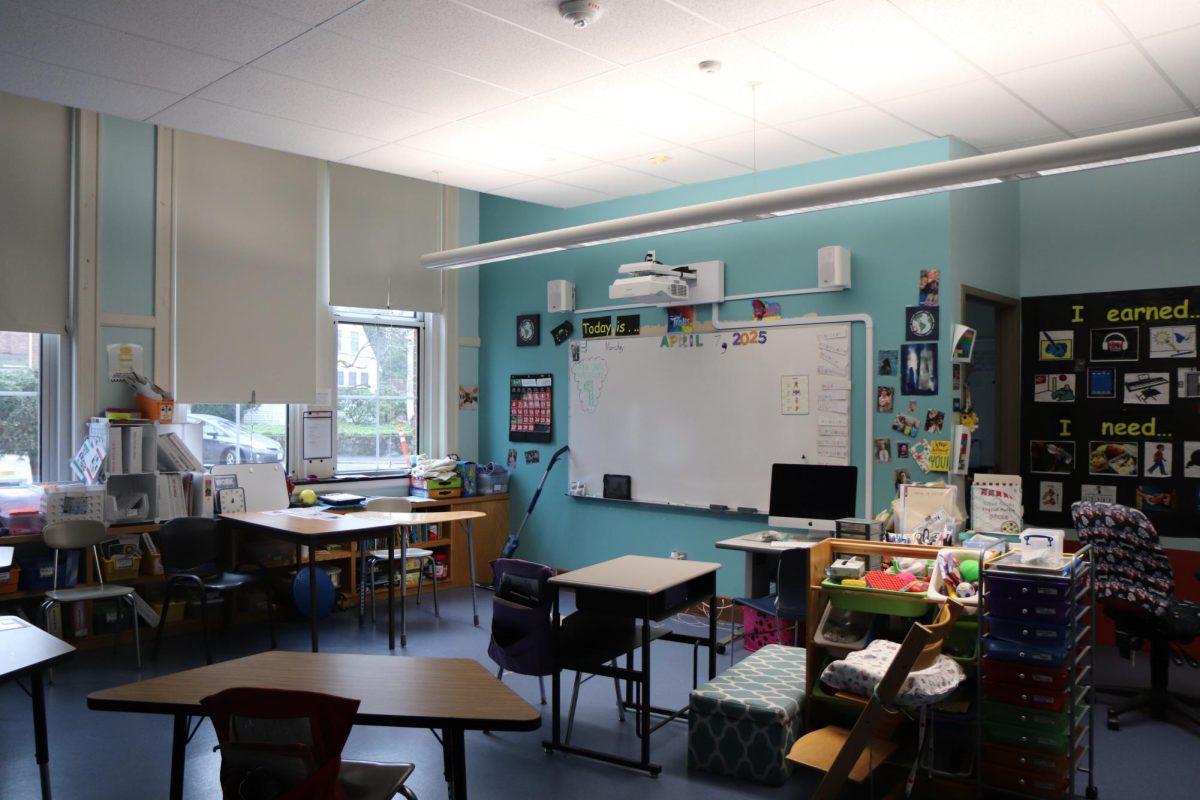On April 1, President Donald Trump and his administration terminated $106 million in K-12 education funding for Massachusetts, targeting statewide efforts to address pandemic-related learning loss around literacy, math and science. This is part of a broader effort by the Trump administration to fundamentally reshape education policy. On March 20, Trump signed an executive order directing Secretary of Education Linda McMahon to “take all necessary steps” to dismantle the Department of Education (DOE). Trump has argued that the DOE promotes “radical indoctrination” and that it has not helped improve student performance.
Since Trump returned to the presidency, the DOE has placed nearly half of all staff on “administrative leave”, including all 1,300 employees at the DOE’s regional office in Boston. However, Trump cannot constitutionally dismantle the department without Congressional approval.
While a vast majority of funding for Brookline schools comes from the town and state, the federal government provides grant programs to help populations facing resource gaps. For example, the Individuals with Disabilities Education Act (IDEA) grant ensures students with disabilities get an accommodating education and Title I provides services for students in need of extra academic support.
According to the Massachusetts Department of Elementary and Secondary Education (DESE), the Public Schools of Brookline received over $2.3 million in IDEA funding and nearly $350,000 in Title I funding from the federal government in Fiscal Year 2025 (FY25). Although this money has been allocated, the fiscal year ends in July, meaning changes in funding would affect the district in the near future. A March 14 article from the liberal public policy think tank Center for American Progress argues that the administration’s cuts “raises concerns” about future funding cuts and oversight reductions to IDEA and Title I.
Robin Fabiano, Director of Secondary Special Education at the Public Schools of Brookline, said that IDEA funding supports critical special education services for students that the state is required to provide.
“An example might be extended school year services, which is a mandate for people with special education needs if they require year round schooling due to a risk of substantial regression during gaps of programming,” Fabiano said.
Gabe McCormick, Senior Director of Teaching and Learning for Educator, Program and Strategic Development, said there are several federal grant programs that make a difference in the lives of students. McCormick said Title III, from which the district received $134,884 in FY25, helps provide services for English as a Second Language students, such as translation and family engagement.
“[Title III] supports a lot of family connection programming, and so the Title III funds help families really feel like they’re a part of Brookline,” McCormick said. “It does fund some translation services, which provides access to families, but it also supports some English learning programs for adults and families.”
Librarian Shelley Mains said she worries that the library’s budget, as well as other programs such as music or performing arts, could face cuts as part of difficult budgetary calls if more funds must be reallocated for necessary special education programs.
“That’s the writing on the wall—what other things would have to be cut in order to make up for mandated programs being paid for?” Mains said.
Under state and federal law, many special education services are mandated in public schools. That means that a potential delay or reduction in funding would result in the town—which is already facing an $8.2 million budget deficit—and the state having to find ways to pay for entitlements previously provided by the government. In a March 12 appearance on WGBH’s Boston Public Radio, Governor Maura Healey said that “we do not have enough money as a state, we do not have enough money to even begin to make up for the shortfall.”
In Brookline, this could mean potential cuts to performing arts and career and technology education (CTE) programs because of the limited funds for these services.
McCormick said that the Perkins grant, which gives federal funding for the CTE program, provides essential supplies and tools for hands-on classes.
“If they only lost the Perkins grant, they would lose about half of their funding. That would be a huge loss for CTE,” McCormick said. “The woodworking class needs wood, right? Metals class needs metal in order to actually function. Those things are really expensive. We’re able to use grant funding to supplement that and make sure those classes are really well-resourced.”
Mains said that the library provides critical services to help students find trustworthy information, and it would be a loss for the community if that assistance was impacted by budget cuts.
“Having reliable resources, especially in a time when there’s increasingly concern about false information, fabricated information, deliberate misinformation, losing access to reliable resources and faculty like us that can help students navigate information would be huge,” Mains said.
Fabiano said that federal money is essential for maintaining a high-quality education for all students in Brookline.
“If IDEA wasn’t in place, the states would not have the money to then make sure that kids with disabilities can access education,” Fabiano said. “I would say that if you didn’t have that money, then we would probably not be able to offer the same level of robust programming that we currently do.”
This story was originally published on The Sagamore on April 7, 2025.






































